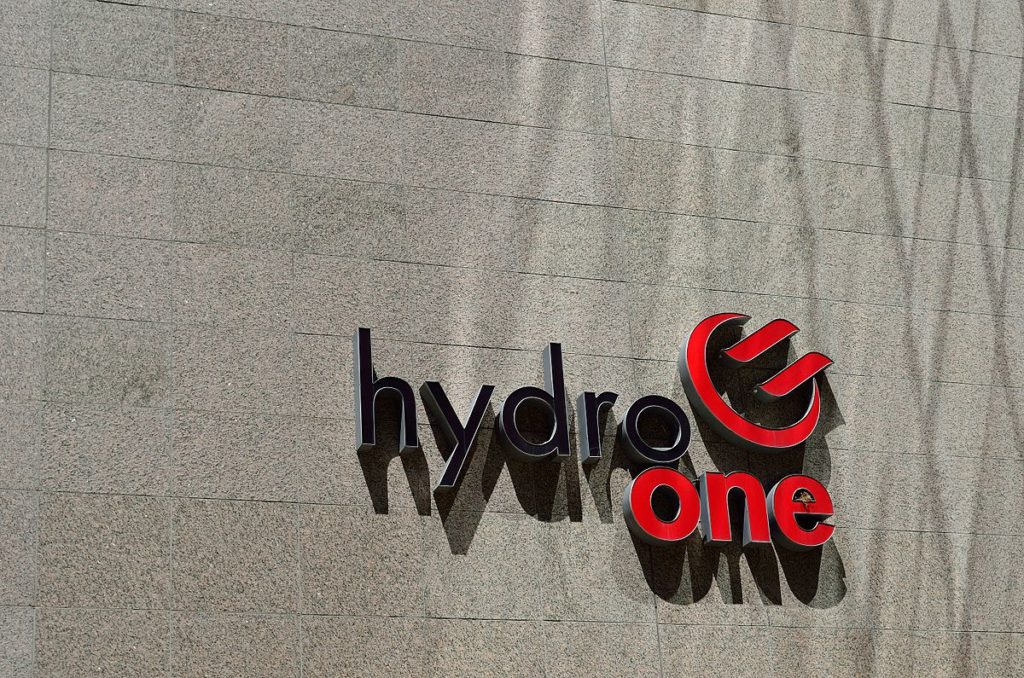Canada News
Tory government moves to take greater control of Hydro One executive salaries

It would require the Hydro One board of directors to establish a new compensation framework for the CEO and board of directors in consultation with the province and the partially privatized utility’s five largest shareholders. (Photo By Raysonho @ Open Grid Scheduler / Grid Engine – Own work, CC0)
TORONTO — Ontario’s new Progressive Conservative government introduced legislation on Monday that would give it sweeping new powers over executive compensation at Hydro One.
The bill, dubbed the Urgent Priorities Act, was introduced by Energy Minister Greg Rickford and would give the government authority to approve executive compensation at the utility.
It would require the Hydro One board of directors to establish a new compensation framework for the CEO and board of directors in consultation with the province and the partially privatized utility’s five largest shareholders.
It would also require the Ontario Energy Board to exclude executive compensation from consumer rates for Hydro One or its subsidiaries
The government said the bill would “improve transparency and accountability” at the partially privatized company.
The legislation was introduced less than a week after the former CEO of Hydro One retired and the board of directors resigned following a campaign pledge from Premier Doug Ford to fire them.
“The CEO of hydro is gone,” Ford said in the legislature Monday morning. “The board is gone. We’re turning the page when it comes to hydro rates.”
Former Hydro One CEO Mayo Schmidt, who earned a $6.2-million salary last year, became a lightening rod for resentment over rising electricity rates during the spring election.
Schmidt, who Ford called the “Six Million Dollar Man,” would have been entitled to at least $10.7 million in severance if he were to have been removed from his job by the board of directors, according to the company’s annual shareholders report released on March 29.
Under a deal reached with the new Tory government, Schmidt was not entitled to severance, receiving instead a $400,000 lump sum payment in lieu of all post-retirement benefits. But the Opposition noted that Ford glossed over the fact that Schmidt has also qualified for incentives and stock options worth at least $9 million upon retirement.
“That deal is going to take what he called the Six Million Dollar man and put him on a trajectory to be over a Nine Million Dollar man,” said NDP Leader Andrea Horwath. “That’s not a good deal for the people of Ontario.”
Ford told the legislature that Schmidt’s stock option arrangement is no different than that of other Hydro One retirees.
Hydro One was partially privatized in November 2015, and by December 2017 the province had sold off 53 per cent of its stake.
The bill introduced Monday would require Hydro One to publish any proposed changes to compensation at least 30 days prior to the date it seeks approval from the government.
The omnibus bill would also enact back-to-work legislation to end a strike at York University in Toronto.
The labour dispute at the Toronto university saw 3,000 contract faculty and graduate teaching and research assistants walk off the job over issues of wages and job security on March 5.
CUPE Ontario President Fred Hahn, which represents the striking workers, said that if the government proceeded to legislate an end to the labour dispute it could end up in the courts.
The legislation would also cancel the White Pines wind project in Eastern Ontario, something the government promised last week when it laid out its key priorities for the session.
The legislation would also authorize the government to pay WPD Canada, the company behind the project, compensation but doesn’t spell out how much.The company has suggested it could be over $100 million.
The bill also contains a clause the government says will make it immune from civil litigation over the cancellation of green energy projects.
“We’re going to take steps to ensure that the Crown is mitigated or there are serious elements of the legislation that ensure those costs are as low as they can be,” Rickford said. “There will be some.”





















